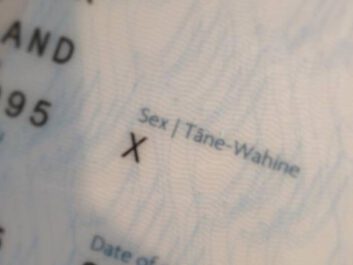Third Gender Marker Options in Europe and Beyond

A gender marker option in passports and official registries other than male or female (unspecified or third gender marker option) is an important issue for many people in trans and intersex communities.
Within Europe, a number of countries have recently taken steps forward on this issue. Recent legal reforms to the area of gender recognition in Malta, have seen the introduction of an “X” as an option in its international passports and public registries. Alongside its gender recognition reforms in 2014, Denmark’s previous practice of enabling trans people to apply for an ‘X’ in international passports became official law.1 In March 2016 Scottish First Minister Nicola Sturgeon announced the recognition of gender identities other than male or female in forthcoming legal reform to be enacted by the Scottish Government.2 In Ireland, a third gender marker option is being discussed in the context of the revision of that jurisdiction’s gender recognition law.
Outside Europe, several countries, including Canada, Nepal, Australia, New Zealand, Pakistan and India, already allow for passports with gender markers other than “F” or “M”; these countries typically use “X”, which is recognised by the International Civil Aviation Organization.
Third Gender Marker Options and International Human Rights
The recording and display of one´s gender identity in the form of a gender marker in ID documents such as a passport touch upon the right to private life. The European Court of Human Rights has ruled that the freedom to determine one’s gender is essential to the right to self-determination3 and that a person’s gender identity is “one of the most intimate areas of a person‘s private life”.4
In combination with other information which is considered highly confidential, for example medical and personnel records relating to a trans person’s previous gender identity, an inaccurate gender marker on a passport may risk exposing a person’s private history of gender identification and assignment. Practices of automatic recording, display, processing and passing on of gendered data displayed in a passport (for example in databases) can pose a threat to trans and intersex people’s privacy. This is therefore a very important and sensitive issue for trans and intersex people.
Resolution 2048 (2015) of the Council of Europe’s Parliamentary Assembly welcomed “the emergence of a right to gender identity […] which gives every individual the right to recognition of their gender identity and the right to be treated and identified according to it” and asked member States to “consider including a third gender option in identity documents for those who seek it”.5
The German Constitutional Court ruled that not offering a positive option for those identifying other than a man or a woman violates the gender non-discrimination provisions of the Basic Law. It ordered the German legislator to introduce procedures until end 2018 enabling another option of registration besides female or male. The Court also clarified that there are different ways of how the gender entry could be named, inter alia suggesting the possiblity of removing mandatory gender registration, as this is not required by German Basic Law.6
The ability under national law to obtain recognition with an “X” gender marker option would bring relief to many trans people, for example those trans people who are still in the process of transitioning and who may wish not to specify their gender (for many reasons), as well as intersex people who may identify as both male and female, and people who identify differently, such as gender fluid or non-gendered.
Giving the option of an X gender marker will protect the rights to self- determination and private life of many trans people, intersex people, and people of other gender identities.
- Transgender Europe, Denmark: X in Passports and New Trans Law Works, 12/09/2014, accessible at:
http://tgeu.org/denmark-x-in-passports-and-new-trans-law-work/ ↩︎ - “Nicola Sturgeon: Scots to be allowed to change gender so they are neither male nor female”, The Telegraph, 31/03/2016 accessible at: http://www.telegraph.co.uk/news/2016/03/31/nicola-sturgeon-scots-to-be-allowed-to-change-gender-so-they-are/?utm_source=dlvr.it&utm_medium=twitter ↩︎
- YY v Turkey, (application no. 14793/08), [decided 10 March 2015]. ↩︎
- Van Kück v Germany, (Application no. 35968/97) [2003] ↩︎
- http://assembly.coe.int/nw/xml/XRef/Xref-XML2HTML-EN.asp?fileid=21736 ↩︎
- https://tgeu.org/joint-statement-civil-society-welcomes-ground-breaking-german-constitutional-court-demand-for-a-new-regulation-of-sex-registration/ ↩︎